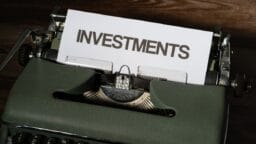The swift ascent of artificial intelligence could catalyze unprecedented economic expansion in the United States; however, David Zervos, chief market strategist at Jefferies, cautions that this burgeoning technology may precipitate significant job losses, an eventuality the Federal Reserve appears ill-equipped to address.
In a recent appearance on CNBC’s Fast Money, Zervos articulated his concerns regarding the Fed’s traditional preoccupation with inflation, positing that such a focus may obscure the employment perils presented by AI innovations.
“We might witness a robust growth economy, driven by an astonishing AI narrative. Yet, the trajectory of job growth may not be as reassuring as one would hope,” he remarked.
A seasoned market bull and a conceivable candidate to succeed Fed Chair Jerome Powell, Zervos painted a disheartening picture of economic prospects.
“Envision an environment where the economy is expanding at three and a half to four percent. While the overall picture looks favorable, the unemployment rate continues to climb,” he elaborated.
AI-Driven Job Loss Projections Raise Concerns Among Financial Experts
He referenced discussions with leading figures in the technology sector, noting:
“Some of the most astute minds in AI have long asserted that we are poised to lose between three to five million jobs over the next three to four years—perhaps at an even swifter pace.”
Widespread Fears Regarding AI Job Losses Expand Beyond Wall Street
In July, Cathie Wood, CEO of ARK Invest, issued a cautionary message regarding escalating pressures in the job market for recent graduates, as AI began to disrupt entry-level positions.
She highlighted a concerning uptick in unemployment among new graduates, which surged from 4% to over 6%, prompting her to urge job seekers to prioritize skill enhancement in AI.
By August, Goldman Sachs Group Inc. noted the detrimental effects AI was having on young professionals in tech, indicating a decrease in this sector’s share of overall U.S. employment since late 2022.
Unemployment rates among individuals aged 20 to 30 in the tech sector have increased by nearly three percentage points since early 2024—over four times the increase observed in the aggregate jobless rate.

Meanwhile, public anxiety intensified. A recent Reuters/Ipsos poll revealed that 71% of Americans harbor fears that AI could lead to irreversible job losses, with 77% expressing concerns about the potential for political instability. Nearly half opposed leveraging AI for military target identification.
Earlier this month, AI pioneer Geoffrey Hinton echoed these apprehensions, warning that AI could ignite mass unemployment while simultaneously augmenting corporate profit margins.
Hinton contended that the capitalist framework, rather than AI itself, would exacerbate wealth disparities, benefiting a minority while impoverishing the majority.
He further criticized the notion of universal basic income as inadequate and lamented the comparatively lax regulatory environment in the U.S. compared to China.
Source link: Inkl.com.






